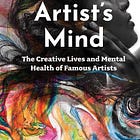The point of writing stories | #109
Do things for the sake of the process, crossing 20K word count mark and more
Hello, this is Celeste. I have been writing poems since 2017 and my low-fantasy crime novel (Project Dylan) since 2022. Letters for Creatives is the place where I share my thoughts on writing, creativity, resources for creatives, and interview creators and authors every 2 weeks.

ICYMI:
Do things for the sake of the thing
Ava wrote about doing things that don’t lead to anything, writing a story. She talked about Emily Nussbaum who wrote reviews and her journey stumbling upon Buffy the Vampire Slayer:
[Emily Nussbaum] was a graduate student at the time who had written some poetry reviews and book reviews, but hadn’t been passionate about it. But watching Buffy the Vampire Slayer for the first time opened up something new. From her book, I Like to Watch: I’d never finish my doctorate. Instead, Buffy spiked my way of thinking entirely, sending me stumbling along a new path. My Buffy fanhood was not unlike any first love. It was life-swamping, more than a bit out of proportion to the object of my affection, and something that I wanted to discuss with everyone, whether they liked it or not. I’d been an enthusiast before, but not a fan in the stalker-crazy-obsessive sense. I had other work to do, teaching and editing and, eventually, working as a magazine journalist, but for several years, the only thing I actually wanted to do was analyze Buffy the Vampire Slayer. (In 2016, she won the Pulitzer for Criticism.)
I have thought about analyzing my favourite books and movies, just to learn more about storytelling in general. But the procrastinator in me never starts.
Me: If you think about it, it can be more daunting than an essay.
Wise me: But it is your favourite stories.
Me: Definitely. I have watched one video on literature analysis. Maybe I can treat it like a hobby?
Wise me: Go for it! You never know what would come out of it.
Don’t get creeped out by the little conversation above. Those of us who (try to) write a good story do a lot of talking in the head. If you ever consider yourself as an over-thinker, writing stories can really be a great hobby.
To understand your needs better, consider completing this survey to help me write these letters better.
Finishing projects
Lincoln Michel emphasized the importance of finishing projects if you want to become an author:
I’ve seen countless books die on the vine because the writer spends forever tinkering and toying. This is especially dangerous at the early stages of a project when you have to make the hard decisions that fix much of the novel in place. Should it be in first person or third? What’s the style? Genre? Structure? I’ve had many friends and students who get stuck here. They rewrite the opening chapter in a different POV. They switch genres and start again. Etc. It can be hard to make these decisions. It’s fun and safe to play around in the early draft stages, frolicking in the open untouched fields that no one will see (and thus be able to judge you by). But at some point you have to fence off an area. Lay a foundation. Build the actual house. At least if you want it to be read by anyone else.
Since I have been writing my first draft for Project Dylan since June 2022, I have experienced what he mentioned above. I have switched genre (once), settled on past tense and switched to present tense, added a POV and deleted one. You name it!
I have also written a lot of words that potentially would not be in the next drafts. I am fine with all that because I have recently crossed ✨the 20K word count mark✨ (finally… it took me 20 months). I found myself less motivated to keep writing as I approached and arrived at the Act II of the novel.
I start to have questions such as:
How can Dylan, the boy with special power, solves the fraud case with the FBI?
What would happen to Dylan, his dad or even his dad ex-girlfriend as they are solving the case?
Does Dylan have any love interest? This is the last thing I am worried about as Dylan’s journey in the book is the most important thing :)
But also, to torture myself more, I have adjusted my target word count ✨from 65K to 80K✨ Because of the word count range in similar genres. If you are deciding on a word count for your current or next novel project, you can use this great tool to check.
Each letter takes me 3-8 hours to compose, write and edit. If you like this letter, you can support the newsletter by:
Subscribing or clicking the little heart
Sharing the letter to get 1-month paid subscription for free
Becoming a paid member at US$1.3 or $0.9 a week, getting full access to the archive of 100+ past issues, including author/creator interviews, creative challenges and more. Thank you for making this project possible!
The rest of the letter on Andrew Scott, ring-fencing your writing time and this week’s creative challenge is available for paying members. You can now become a member for $6 a month, which is $1.33 a week. Or you can get the annual membership for $48, which is only $0.9 a week. If not, see you in 2 weeks!
Andrew Scott touching my heart
Andrew Scott was on Actors on Actors with Greta Lee. At the end, Andrew Scott said something about making up stories that I want to put on the wall:
I find that so extraordinary that something can be conceived in somebody’s mind and then they can have the courage to sort of write it down. The courage to make something that [are] in independent films that touches other people eventually and makes them feel better. It is a wonderful thing to do with your life.
Ring-fencing your writing time
As I am thinking about finding more time to write (you may have realized that this is my year-round question for years…), Oliver Burkeman pointed out that:
It pays to use whatever freedom you do have over your schedule not to "maximise your time" or "optimise your day", in some vague way, but specifically to ring-fence three or four hours of undisturbed focus (ideally when your energy levels are highest).
Stop assuming that the way to make progress on your most important projects is to work for longer. And drop the perfectionistic notion that emails, meetings, digital distractions and other interruptions ought ideally to be whittled away to practically nothing. Just focus on protecting four hours – and don't worry if the rest of the day is characterised by the usual scattered chaos.
I think that all fellow writers would agree that they hate distraction or interruptions when they are writing (in flow state). Like “Excuse me, you just stopped my flow as I was plotting to torture a character and make them confront the villain.”
Challenge #4:
Do something that piques your interest for the sake of doing it, without any expectation of success. It can be analyzing your favourite books or movies or starting a new project in a field you have been thinking about. Anything.
Check out the creative challenges from 2023 and 2024.
Take care,
Celeste






That whole block of hours… multiple hours?! Who is this person?! 😂😂😂
I am afraid that "ring-fencing" as described will not work for me since I am the mother of five children (some with significant needs). I somehow make time to write but it is inconsistent each day due what I absolutely need to get done to keep life from falling apart. When writing is a need, rather than desire, it forces its way into every open space in your life.